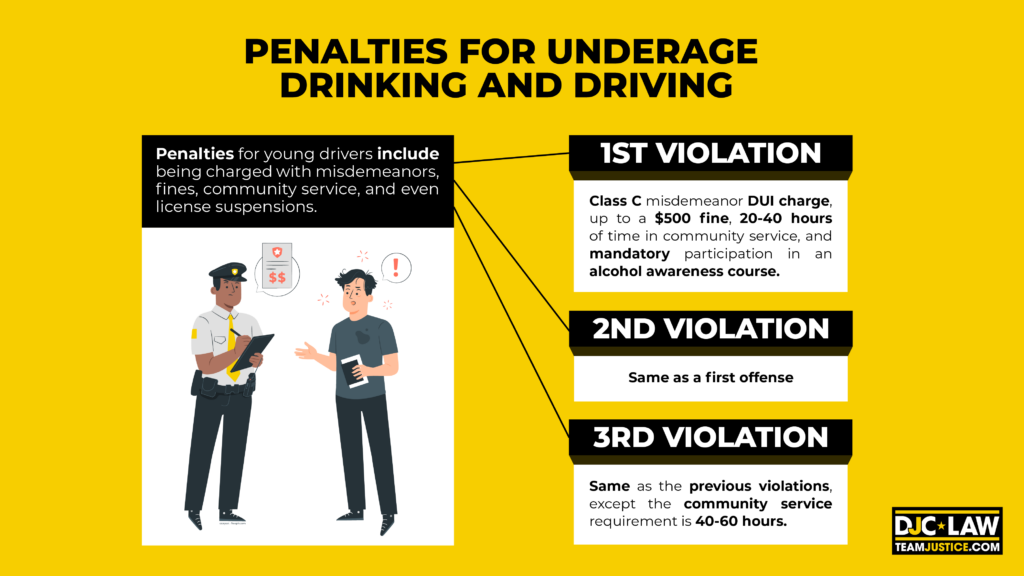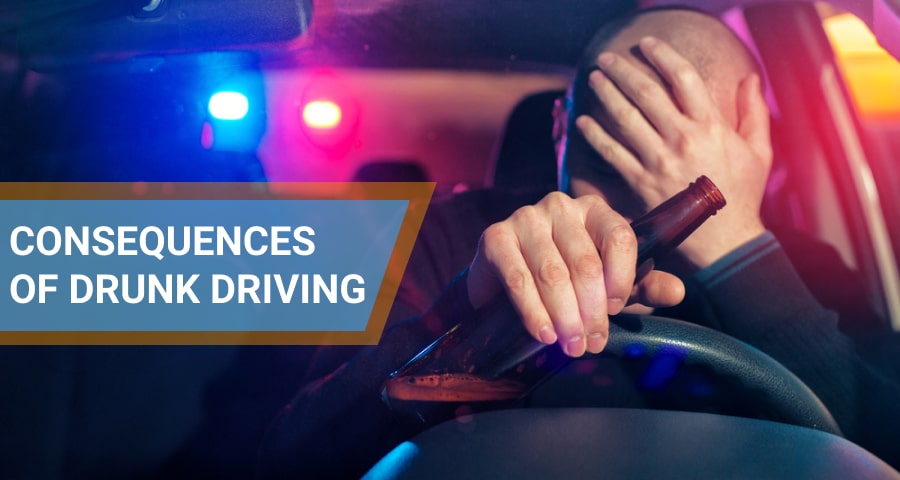Texas has some of the strictest drink driving penalties in the United States. The state takes a firm stance against driving under the influence (DUI) and Driving While Intoxicated (DWI), enforcing severe legal, financial, and social consequences on offenders. These measures are designed to deter individuals from engaging in such reckless behavior, ensuring the safety of all road users.
If law enforcement catches you driving under the influence of alcohol or drugs, you may face hefty fines, license suspension, and even jail time. Texas aggressively enforces these laws to prevent road accidents caused by impaired driving. The legal repercussions of a DWI conviction can be long-lasting, affecting various aspects of a person’s life, including employment, insurance rates, and social standing.
Texas follows a zero-tolerance policy for drink driving, especially for younger drivers. Law enforcement officers receive extensive training to detect intoxicated drivers and enforce strict penalties. These consequences serve as a strong deterrent against future offenses and ensure public safety.
Understanding What Constitutes Drink Driving in Texas
Drink driving, legally termed as Driving While Intoxicated (DWI) in Texas, occurs when an individual operates a motor vehicle with a blood alcohol concentration (BAC) of 0.08% or higher. However, Texas law allows officers to arrest individuals even if their BAC is below this limit if they exhibit signs of impairment. The state employs a Zero Tolerance Law for drivers under the age of 21, meaning any detectable amount of alcohol in their system can lead to serious legal consequences.
For commercial drivers, the BAC limit is even stricter, set at 0.04%. This is due to the increased responsibility and potential dangers associated with operating large commercial vehicles. Additionally, if an officer believes a driver is impaired due to drugs or prescription medications that affect their physical or mental faculties, they can be charged with a DWI, regardless of alcohol consumption.
Alcohol affects individuals differently based on several factors, including body weight, metabolism, food intake, hydration levels, and alcohol tolerance. This makes it difficult to estimate whether one is within the legal limit. Officers use various methods, including field sobriety tests, to assess impairment. If you struggle with balance, have slurred speech, or fail sobriety tests, you may still be arrested for a DWI, even with a BAC below 0.08%.
Texas also has strict open container laws. If officers find an open container of alcohol in your vehicle, you could face additional penalties, even if your BAC is within the legal limit. This law applies to both drivers and passengers, further reinforcing Texas’ commitment to reducing drink driving incidents.
The Harsh Reality of Drink Driving Penalties in Texas
Texas law applies escalating penalties for drink driving based on several factors, including prior offenses, BAC levels, the presence of minors in the vehicle, and whether the offense resulted in injury or fatality. These penalties are categorized as follows:

First Offense DWI Penalties
Many individuals underestimate the consequences of a first-time DWI conviction, but Texas enforces serious penalties, which may include:
- Fines up to $2,000 – This excludes additional costs such as court fees, attorney fees, and mandatory programs.
- Jail time between 3 and 180 days – Depending on the severity of the offense and any aggravating factors, first-time offenders may serve jail time.
- License suspension for up to one year – Losing your driving privileges can significantly impact daily activities, work, and personal responsibilities.
- Annual fee of $1,000 to $2,000 for three years – This fee applies when reinstating your license, adding a long-term financial burden.
- Probation and community service – Courts often require offenders to complete a probation period and perform community service as part of their sentence.
- Mandatory Alcohol Education Program – Offenders must complete a 12-hour alcohol education course before regaining their driving privileges.
- Vehicle impoundment – Authorities may impound the offender’s vehicle, leading to additional financial costs.
- Employment consequences – Some jobs require a clean driving record, and a DWI conviction can impact job opportunities in fields such as transportation, law enforcement, and government positions.
A first-time DWI conviction remains on a person’s record permanently unless they qualify for an expungement, which is only available under specific circumstances.
Second and Third Offense DWI Penalties
The penalties for repeat offenses are significantly harsher, reflecting the seriousness of multiple violations.
Second Offense:
- Fines up to $4,000
- Jail time ranging from one month to one year
- License suspension for up to two years
- Annual license reinstatement fee of up to $2,000 for three years
- Installation of an ignition interlock device – This device prevents the vehicle from starting if alcohol is detected in the driver’s breath.
Third Offense:
- Fines up to $10,000
- Prison sentence ranging from two to ten years
- License suspension for up to two years
- Mandatory community service and extended probation periods
- Felony charges – A third DWI offense is classified as a felony, which has severe long-term consequences.
Additional Consequences Beyond Legal Penalties

A DWI conviction impacts various aspects of life beyond legal penalties. Here are some long-term consequences:
Higher Insurance Premiums
A DWI conviction classifies you as a high-risk driver, which significantly raises insurance premiums. Insurers view individuals with a history of impaired driving as more likely to be involved in future accidents, leading to higher policy costs. Some insurance companies may even deny coverage altogether, forcing individuals to seek high-risk insurance policies that come with substantial financial burdens. These increased premiums can last for years, making it challenging for convicted individuals to afford car insurance.
Employment Challenges
A DWI conviction can affect employment opportunities, especially in industries that require a clean driving record, such as government, law enforcement, and commercial transportation. Some employers have strict policies that may result in job termination following a DWI conviction.
Loss of Professional Licenses
Professionals such as doctors, lawyers, teachers, and pilots may face disciplinary actions or even lose their professional licenses, significantly impacting their careers and financial stability.
Social Stigma and Personal Struggles
A DWI conviction can carry a social stigma, affecting personal relationships and reputations. Many individuals face strained family and social connections due to the embarrassment and consequences of their actions.
Difficulty Obtaining Loans and Housing
Financial institutions and landlords may view a criminal record as a red flag, making it difficult for individuals with a DWI conviction to secure loans or rental agreements.
Travel Restrictions
A DWI conviction can impact a person’s ability to travel internationally. Some countries, such as Canada, have strict policies regarding individuals with DUI/DWI convictions. Those convicted may be denied entry or required to go through legal processes, such as applying for special permits or rehabilitation programs. This can pose significant challenges for individuals who need to travel for work, family visits, or leisure, further complicating life post-conviction.
Preventing Drink Driving: Responsible Choices

The safest choice is to never drive after consuming alcohol. Texas enforces strict drink driving penalties to prevent tragedies caused by impaired driving. The risk is never worth it. Here are some responsible alternatives:
- Use rideshare services – Apps like Uber and Lyft provide convenient alternatives to driving under the influence. They are widely available and can be a lifesaving option for those who have been drinking.
- Designate a sober driver – Always plan ahead and assign a designated driver if alcohol consumption is involved. Ensure this person commits to staying completely sober for the entire event.
- Take public transportation – Buses, taxis, and other public transport options are safer than risking a DWI. Plan your route in advance if you know you’ll be drinking.
- Stay overnight – If drinking at a friend’s house or an event, consider staying overnight instead of driving. Many hosts accommodate guests to prevent unsafe driving.
- Utilize alcohol detection tools – Personal breathalyzers can help gauge whether you are legally safe to drive, but they should not be solely relied upon.
- Encourage responsible drinking – One of the best ways to prevent drink driving is to practice responsible drinking habits. This includes drinking water between alcoholic beverages to stay hydrated. Drink water between alcoholic beverages and pace yourself to avoid overconsumption.
- Watch out for friends and family – If someone you know is about to drive after drinking, step in and arrange a safe alternative. Sometimes, individuals may underestimate their level of intoxication, so it’s crucial to be proactive in preventing them from making a dangerous decision.
- Designate a sober driver – Always plan ahead and assign a designated driver if alcohol consumption is involved. If a designated driver isn’t available, consider using rideshare services or public transportation.
- Take public transportation – Buses, taxis, and other public transport options are safer than risking a DWI.
- Stay overnight – If drinking at a friend’s house or an event, consider staying overnight instead of driving.
Final Thoughts
Texas has strict drink driving laws for a reason. The consequences of a DWI conviction can be life-altering, affecting financial stability, freedom, and future opportunities. Making responsible choices and avoiding drink driving ensures not only personal safety but also the well-being of others on the road.
If you or someone you know is facing a DWI charge, seek legal counsel immediately. A skilled criminal defense attorney can help navigate the legal process, evaluate possible defenses, and work toward the best possible outcome. However, the best defense against a DWI is prevention—never drink and drive.


